“Most people of the continent live on subsistence farming. For their daily sustenance many of them have to physically till their garden so as to find food in their homes. Fortunately, a good portion of land is blessed with fertile soil, enough water, favorable climate and most countries have millions of young people who are in their productive age, able to engage in the agricultural sector,” Fr. Arasu says.
He adds, “With better planning and utilization of resources Africa can do better than what it is now.”
The SDB Priest however notes that Africa is likely to suffer the negative impact of pollution and wastage of resources more than any other continent if it fails to pay attention to the ongoing global environment degradation.
“Monitoring the continuous degradation of natural resources makes us realize that the imminent environmental disaster is coming sooner than later. The rapid population growth and the related mismanagement of resources may quickly become an environmental tragedy for the coming generations,” Fr. Arasu warns in his reflection.
The Priest notes that Uganda’s population has been doubling every 15 years, a situation he says puts a strain on the country's natural resources.
(Story continues below)
“There is an ever-increasing need for fuel energy for domestic use,” he says, and explains, “Out of the current population of 44 million people in Uganda, 95 percent use either wood or charcoal for fuel energy.”
The demand, Fr. Arasu says, has led Ugandans “to destroy their forests indiscriminately.”
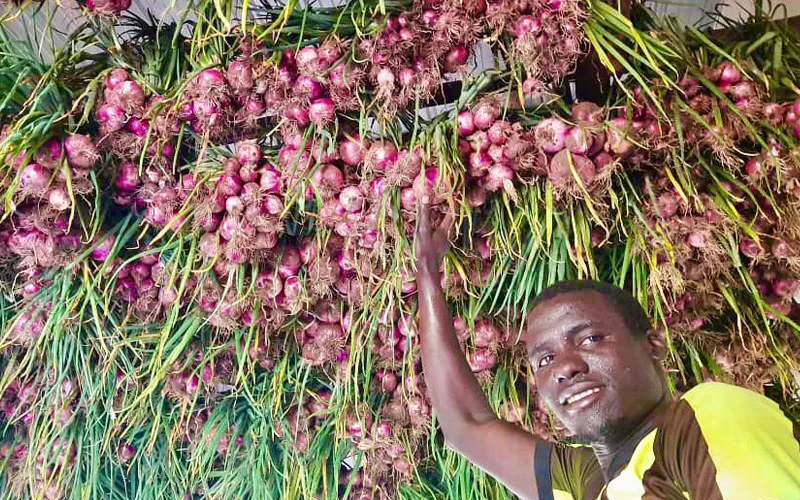 Credit: Fr. Lazar Arasu
Credit: Fr. Lazar Arasu
“Districts and vast areas of land which had natural forests are no more. Charcoal trade has become a lucrative trade for persons who are either in high positions or have links with highly placed officials,” the Priest laments.
It is estimated that over a quarter of Uganda’s trees were cut down between 1990 and 2005. Reports further indicate that since 2005, over 2 percent of forests have been destroyed in Uganda every year.
“Some even claim that 80 percent of forests and natural vegetation has been destroyed in the last five decades,” the Salesian Priest says.
At the August 16 event on a day that members of SDB celebrate the birthday of their founder, Don Bosco, the young people also pledged to reduce the use of plastics and to always collect them for recycling.
The youth also promised not to waste paper, not to waste food, to make compost manure and to grow their own vegetables and fruits.
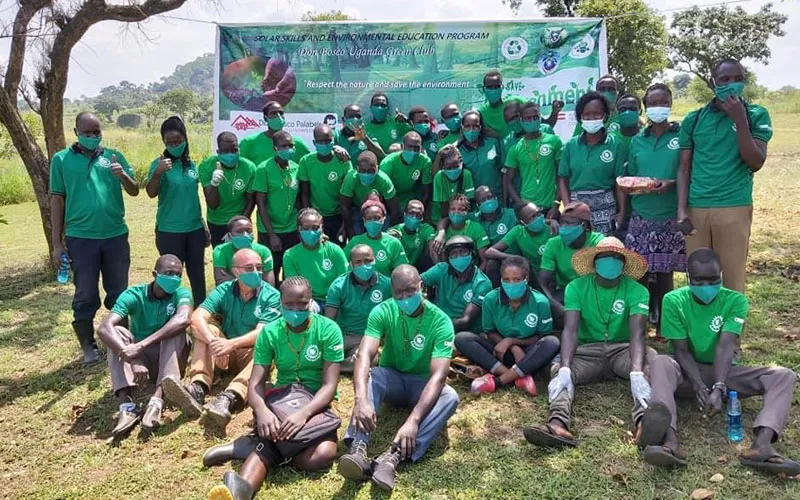 Credit: Fr. Lazar Arasu
Credit: Fr. Lazar Arasu
Apart from the indigenous and exotic trees, the “Laudato Si’ Garden” also has a few acres of fruits and vegetable gardens.
The produce, Fr. Arasu says, is generously shared by the students who planted and cared for them. Vegetables and fruits also boost the diet at the refugee camp where most meals include boiled maize and beans.
At the end of the Launching Day of “Laudato Si’ Garden”, refugee students were given fruits and vegetables to take home.
Agnes Aineah is a Kenyan journalist with a background in digital and newspaper reporting. She holds a Master of Arts in Digital Journalism from the Aga Khan University, Graduate School of Media and Communications and a Bachelor's Degree in Linguistics, Media and Communications from Kenya's Moi University. Agnes currently serves as a journalist for ACI Africa.
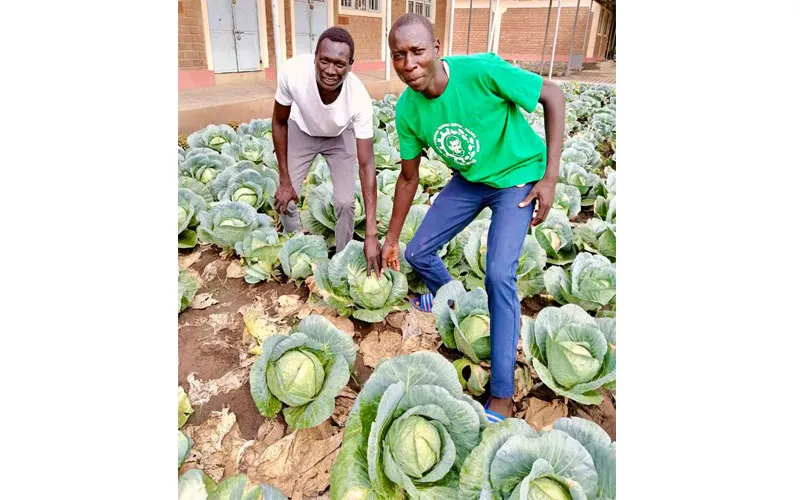 Credit: Fr. Lazar Arasu
Credit: Fr. Lazar Arasu


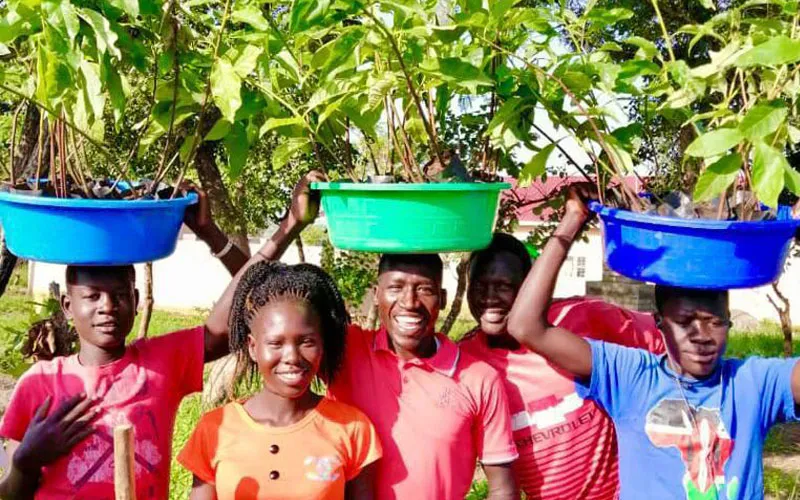
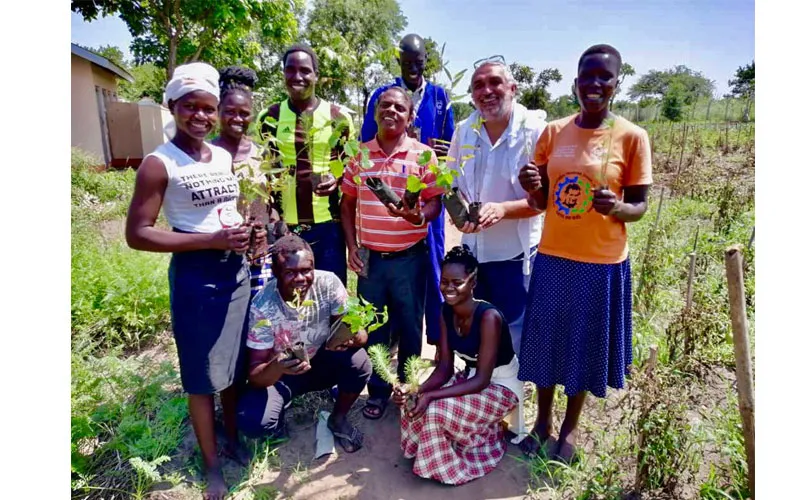 Credit: Fr. Lazar Arasu
Credit: Fr. Lazar Arasu
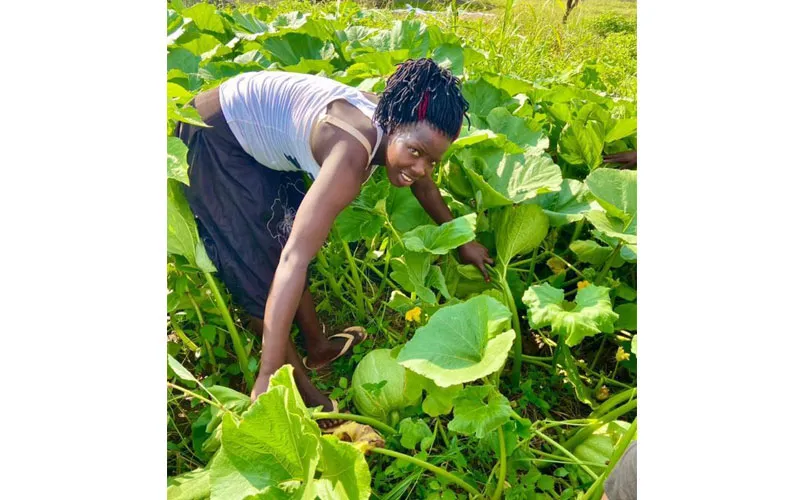 Credit: Fr. Lazar Arasu
Credit: Fr. Lazar Arasu Credit: Fr. Lazar Arasu
Credit: Fr. Lazar Arasu Credit: Fr. Lazar Arasu
Credit: Fr. Lazar Arasu


